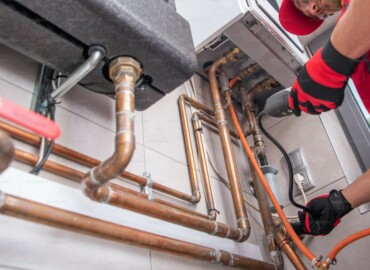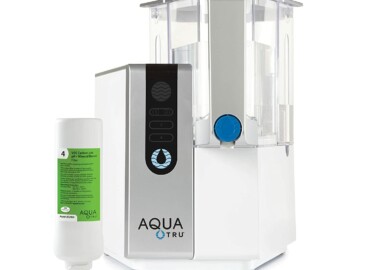Water Heater Leaking Water? Here’s What You Need to Know to Fix It Fast
As a homeowner, one of the most frustrating things that can happen is discovering a water heater leaking water. Not only is this issue a major inconvenience, but it can also cause significant water damage to your home if not addressed quickly. In this article, I’ll discuss common types of water heater leaks, signs of water heater leakage, and steps to fix a water heater leaking water.
Why is my water heater leaking water?
There are several reasons why your water heater may be leaking water. One of the most common causes is a faulty or damaged pressure relief valve. This valve is designed to release pressure inside the tank to prevent it from exploding. If the valve is not working properly, it can cause water to leak out of the tank. Other common causes of water heater leaks include a corroded tank, loose connections, or a malfunctioning heating element.
Common types of water heater leaks
There are several different types of water heater leaks that you may encounter. The most common types include:
Tank leaks
If you notice water pooling around the base of your water heater, it may be due to a leak in the tank. This type of leak is typically caused by corrosion or damage to the tank itself. Unfortunately, if your tank is leaking, it will likely need to be replaced.
Pressure relief valve leaks
As mentioned earlier, the pressure relief valve is responsible for releasing pressure inside the tank. If the valve is damaged or faulty, it may cause water to leak out of the valve itself. This type of leak can often be fixed by replacing the valve.
Loose connections
Over time, the connections between your water heater and the supply lines may become loose. This can cause water to leak out of the connections. Tightening the connections may solve the problem.
Signs of water heater leakage
In addition to visible leaks, there are several other signs that your water heater may be leaking. These include:
Reduced hot water supply
If your water heater is leaking, it may not be able to keep up with demand. This can result in a reduced hot water supply throughout your home.
Strange noises
A leaking water heater may also produce strange noises, such as popping or hissing sounds. This is often caused by a buildup of sediment in the tank.
Rusty water
If you notice rusty water coming from your hot water supply, it may be a sign that your water heater is leaking.
How to fix a water heater leaking water
If you discover a water heater leaking water, the first step is to turn off the power supply and water supply to the unit. Once you’ve done this, you can inspect the unit for visible signs of leakage. If you’re comfortable doing so, you can try to fix the leak yourself.
DIY steps to fix water leakage from a water heater
Here are the steps you can take to fix a water heater leaking water:
Step 1: Drain the tank
Before you start working on the water heater, you’ll need to drain the tank. To do this, turn off the water supply to the unit and attach a hose to the drain valve. Open the valve and let the water drain into a bucket or drain.
Step 2: Inspect the tank
Once the tank is drained, inspect it for signs of corrosion or damage. If the tank is damaged, it will need to be replaced.
Step 3: Replace the pressure relief valve
If the pressure relief valve is responsible for the leak, it will need to be replaced. This is a relatively simple process that involves removing the old valve and installing a new one.
Step 4: Tighten loose connections
If the leak is caused by loose connections, you can tighten them using a wrench or pliers. Be careful not to overtighten the connections, as this can cause damage.
When to call a professional for water heater leakage
If you’re not comfortable working on your water heater or if the leak is severe, it’s best to call a professional plumber. A plumber can inspect your unit, diagnose the problem, and make any necessary repairs.
Preventing water heater leaks in the future
To prevent water heater leaks in the future, it’s important to perform regular maintenance on your unit. This includes flushing the tank to remove the sediment buildup, inspecting the unit for signs of corrosion, and replacing any damaged or faulty components.
What to do if water is dripping near your water heater
If you notice water dripping near your water heater, it’s important to act quickly to prevent damage to your home. Follow these steps:
Step 1: Turn off the power and water supply
The first step is to turn off the power and water supply to the unit to prevent further damage.
Step 2: Inspect the unit
Inspect the unit for visible signs of leakage, such as water pooling on the floor or dripping from the unit.
Step 3: Call a professional
If you’re not comfortable fixing the problem yourself, call a professional plumber to inspect the unit and make any necessary repairs.
Conclusion: Take action to fix water heater leaks
In conclusion, a water heater leaking water is a serious issue that requires prompt attention. By understanding the common causes of water heater leaks, signs of leakage, and steps to fix the problem, you can take action to prevent damage to your home. Remember to perform regular maintenance on your unit to prevent leaks in the future. If you’re not comfortable working on your water heater, don’t hesitate to call a professional plumber for help.
If you’re experiencing a water heater leak, don’t wait to take action. Call us today to get your unit back up and running.
FAQ
Can you use the shower if your water heater is leaking water?
Usually, in the case of small leaks, you can use the shower even if the water heater is leaking water. But, in the case of big leaks, avoid showers as they may worsen the leak or cause electrical problems.
Is a water heater leaking water dangerous?
Yes, prolonged and heavy water leak from a water heater is dangerous. It possesses the risk of scalding, damaging a building, and water heater bursts (however, rare). Therefore, it is necessary to fix a leaking water heater as soon as possible.
How long will your water heater last once it starts leaking?
It depends on the reason for the water leak. Say, if it is due to a corroded tank or cracked tank, then it won’t last and needs replacement. But if it is due to inlet pipes or drain valves, a simple replacement of the components is enough, and it won’t affect the life of the water heater. Thus, seek an expert’s opinion to understand the impact of the damage on the water heater’s life.



